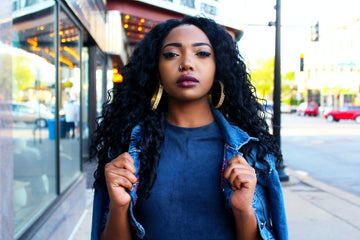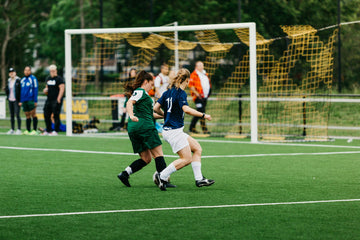How Diet Affects Your Hair Health
Maintaining healthy and lustrous hair goes beyond just using high-quality hair appliances and products. Believe it or not, your diet plays a crucial role in the overall health of your hair. The nutrients you consume not only nourish your body but also impact the strength, texture, and growth of your hair. In this blog post, we will explore how different dietary choices can affect your hair health and offer practical tips for achieving vibrant, beautiful locks.
Protein for Strong and Healthy Hair
Protein is an essential nutrient for maintaining strong and healthy hair. Hair strands are primarily made up of a protein called keratin. Therefore, a diet rich in protein can greatly impact the strength and integrity of your hair. Include lean sources of protein like chicken, fish, eggs, and tofu in your meals to provide your hair with the building blocks it needs to grow and thrive.
Essential Fatty Acids for Shiny Hair
Achieving shiny and glossy hair starts from within. Consuming adequate amounts of essential fatty acids not only benefits your overall health but also promotes hair vitality. Omega-3 fatty acids, commonly found in fatty fish like salmon and sardines, as well as walnuts and flaxseeds, can help improve the natural shine and luster of your hair. Including these foods in your diet can help combat dryness and brittleness, leaving you with enviable, shimmering locks.
Biotin for Hair Growth
Biotin, also known as vitamin H, is a water-soluble B-vitamin that plays a crucial role in hair growth and scalp health. It helps produce keratin, the protein that makes up the hair structure. Including biotin-rich foods like eggs, almonds, sweet potatoes, and spinach in your diet can support healthy hair growth. Additionally, considering biotin supplementation can be beneficial for those with biotin deficiencies, as it can stimulate hair growth and strengthen the hair follicles.
Iron and Zinc for Preventing Hair Loss
Hair loss can be a distressing issue for many individuals. While multiple factors contribute to hair loss, certain nutrient deficiencies can exacerbate the problem. Iron deficiency, for instance, can lead to hair thinning and loss. Consuming iron-rich foods like spinach, legumes, red meat, and fortified cereals can help prevent hair loss caused by iron deficiency. Similarly, zinc deficiency has been linked to hair loss and scalp issues. Adding zinc-rich foods such as oysters, pumpkin seeds, and fortified breakfast cereals to your diet can help maintain a healthy scalp and promote hair growth.
Vitamin C for Healthy Scalp
A healthy scalp is crucial for maintaining strong and gorgeous hair. Vitamin C is an antioxidant that supports the production of collagen, a protein that provides structure to the hair follicles. Including vitamin C-rich foods like citrus fruits, strawberries, bell peppers, and broccoli in your diet can help ensure a healthy scalp environment. This, in turn, promotes optimal hair growth and reduces the risk of conditions like dandruff and dryness.
Conclusion
While hair appliances and products are important for achieving your desired hairstyle, it's important not to overlook the role of nutrition in maintaining healthy and vibrant hair. By incorporating protein, essential fatty acids, biotin, iron, zinc, and vitamin C into your diet, you can support your hair health from the inside out. Remember, a balanced and nutrient-rich diet, coupled with professional-grade hair appliances and expert advice, is the perfect recipe for stunning and enviable hair.






